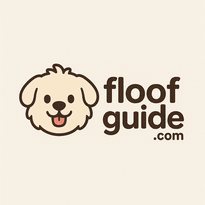Is your furry friend turning your garden into a construction site or your favorite shoes into a chew toy? Don't despair! Chewing and digging are natural dog behaviors, but that doesn't mean you have to live with the destruction. With a little understanding and the right approach, you can redirect these instincts and keep your dog (and your belongings) happy and safe.
Understanding Why Dogs Chew and Dig
Before you can stop the behavior, it's important to understand the reasons behind it. Chewing and digging can be caused by several factors:
- Boredom: A bored dog is a destructive dog. Lack of mental and physical stimulation can lead to pent-up energy that's released through chewing and digging.
- Anxiety: Some dogs chew or dig when they're feeling anxious or stressed, especially when left alone. This is often related to separation anxiety.
- Natural Instincts: Certain breeds, like terriers, are naturally inclined to dig. Chewing is also a natural behavior for exploring the world and relieving teething discomfort in puppies.
- Attention-Seeking: Sometimes, a dog will chew or dig simply to get your attention, even if it's negative attention.
- Nutritional Deficiencies: In rare cases, compulsive chewing or eating of non-food items (pica) can indicate a nutritional deficiency.
How to Stop Destructive Chewing
Here's how to keep your belongings safe from those chompers:
- Provide Plenty of Chew Toys: Offer a variety of durable chew toys in different textures and sizes. Rotate them regularly to keep things interesting.
- Choose the Right Toys: Consider your dog's chewing style. Power chewers need tougher toys. Avoid toys with small parts that can be swallowed.
- Supervise, Supervise, Supervise: When you can't supervise, confine your dog to a crate or safe room with appropriate chew toys.
- Make Off-Limits Items Unattractive: Use bitter apple spray or other dog-safe deterrents on furniture and other items you want to protect. Reapply regularly.
- Address Boredom: Increase your dog's exercise and mental stimulation. Daily walks, playtime, and puzzle toys can make a huge difference. A tired dog is a good dog!
- Teach the "Leave It" Command: This command is invaluable for stopping your dog from chewing on things they shouldn't. Start with simple objects and gradually increase the challenge.
Interesting Fact:
Did you know that dogs have over 42 teeth? That's a lot of potential chewing power!
How to Stop Destructive Digging
Keep your yard looking its best by addressing the digging habit:
- Designate a Digging Zone: If possible, create a designated digging area in your yard. Bury toys or treats in the area to encourage your dog to dig there instead of elsewhere.
- Make Other Areas Unattractive: Use chicken wire or rocks to make digging in certain areas less appealing. You can also bury citrus peels, which many dogs dislike the smell of.
- Provide Shade and Water: Dogs sometimes dig to create a cool spot in hot weather. Make sure your dog has access to shade and fresh water, especially during the summer months.
- Increase Exercise and Mental Stimulation: Just like with chewing, boredom can be a major cause of digging. Increase your dog's activity level.
- Consider an Anti-Digging Barrier: Bury chicken wire horizontally just below the surface of the soil in areas where your dog likes to dig.
- Don't Punish After the Fact: If you find a hole your dog dug, avoid scolding them. They won't understand why they're being punished. Focus on prevention and redirection.
By understanding the reasons behind your dog's chewing and digging, and by implementing these strategies, you can create a happier, less destructive environment for both you and your furry friend. Remember to be patient and consistent, and celebrate small victories along the way! If problems persist, consider contacting a professional dog trainer or behaviorist.

